CONTINGENCY OPERATING BASE SPEICHER, TIKRIT, Iraq - There are children in Iraq who suffer from congenital heart diseases that rob them of ever having a normal childhood. But with the combined efforts of dedicated Iraqi and American physicians, the road to mending the lives of these children is becoming more and more within reach.
The medical professionals of the 3rd Infantry Brigade Combat Team, 25th Infantry Division and 47th Combat Support Hospital hosted a diagnostic cardiovascular screening session, Sept. 17, for 12 Iraqi children. The screening is the first phase of a Government of Iraq and United States forces effort to link potential sponsors from various non-governmental organizations to fund children's heart surgery.
"I am thankful for the invitation to allow my son to get medical attention. We have knocked on many doors in the past and none of them opened, but this door was opened with a very warm welcome. I am thankful because our children are receiving the help they need and deserve," said Eissa Sayir, a Sharqat native and father of one of the children being treated.
The children selected were previously screened by an Iraqi physician and shown to have poorly oxygenated blood, difficulties running and playing and an inability to keep up with other kids, all due to their heart defects.
"Today we are screening 12 Iraqi children for congenital heart disease. We are performing several different tests to see what the anatomy of their heart is and what kinds of medical problems they have in order to potentially correct these defects," said Lt. Col. Lance Cordoni, of Kailua, Hawaii, the 3rd Inf. Bde. Combat Team surgeon.
Dr. Qutaybah, the Salah ad-Din interim director general of health, spoke to the Tikrit Teaching Hospital and asked them to send their best cardiologist to participate in the screening and benefit from the additional training.
During the screening, Army physicians and Tikrit cardiologist Dr. Emad reviewed the children's medical records and ran additional blood pressure tests, EKG scans and the echocardiogram to receive a better understanding of their medical conditions.
"Once we have a clear cut idea of what the medical problems are, we will then assess the children to see if they are candidates for surgical repair...if so they will be put in [touch] with NGOs to try and facilitate their surgery," Cordoni explained.
"This is an excellent step to have the patients seen by the American Army doctors...allowing the children to receive the echocardiogram to see whether the next phase is medication or surgical operation at a different hospital," Emad said.
Col. John Scott, of Silver Spring, Md., the only American pediatric cardiologist in Iraq, said the Iraqi professionals have the equipment to provide accurate diagnosis for children with heart diseases, but have difficulty connecting potential patients to outside support from NGOs.
"The Iraqi cardiologist has a echocardiogram, so what we are doing here is showing him how to relay the information found through the tests, so the potential NGOs and hospitals that perform the surgery will take the patients," said Scott.
Capt. Daniel Sem, the brigade medical planner, says by helping these 12 children, the GoI and U.S. forces are working together to set up a system to assist future families in receiving the proper medical attention that may keep their loved ones alive.
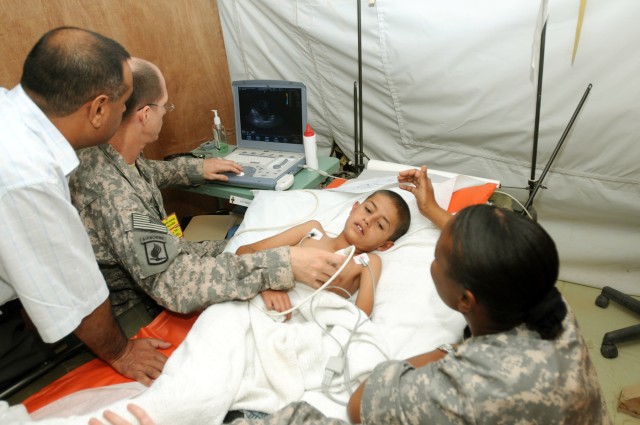
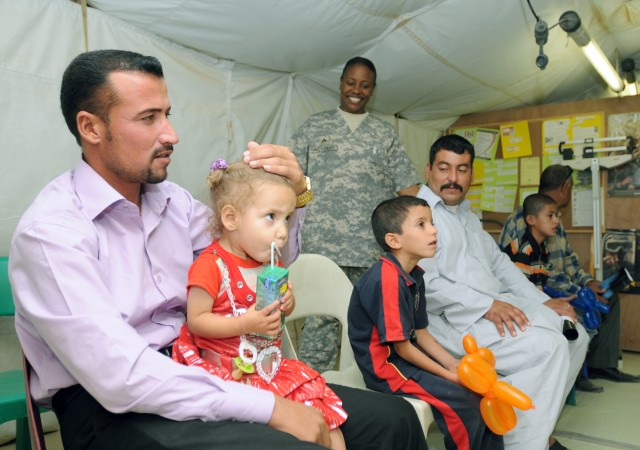
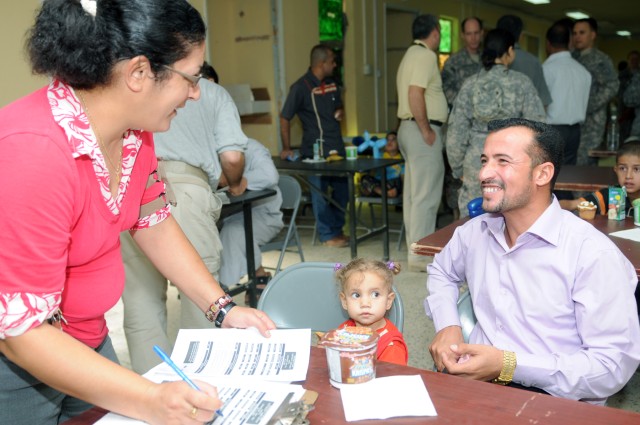
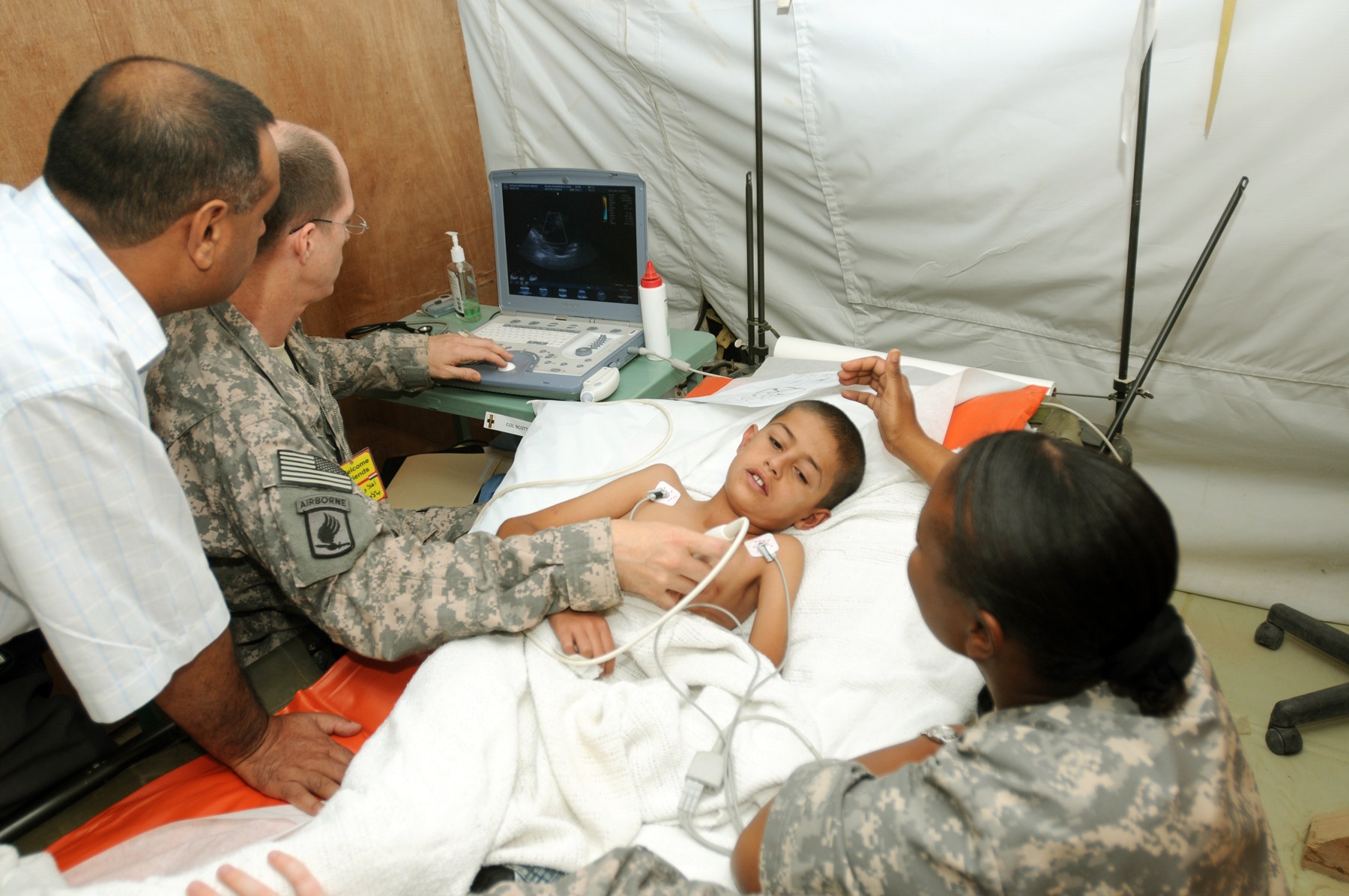
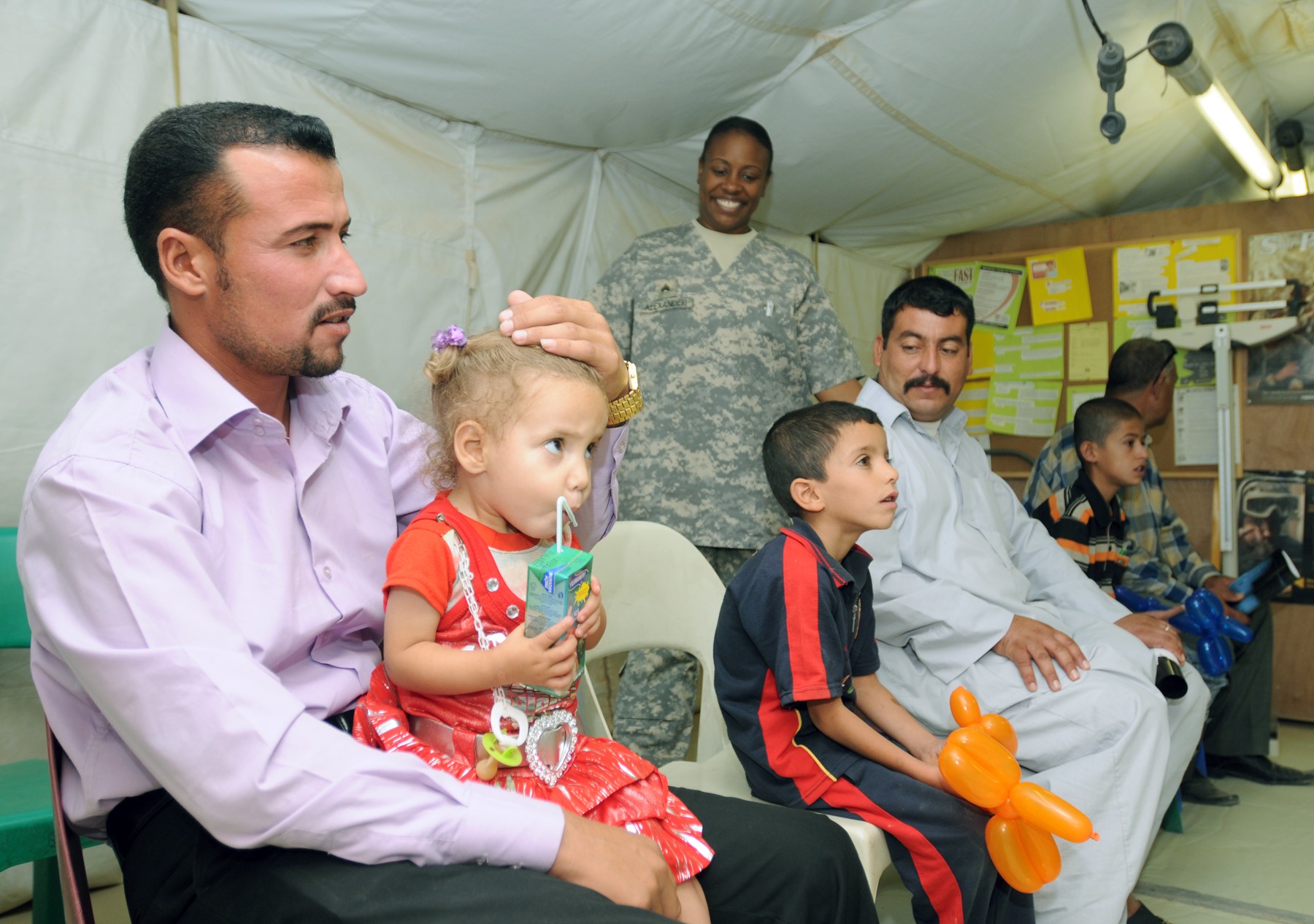
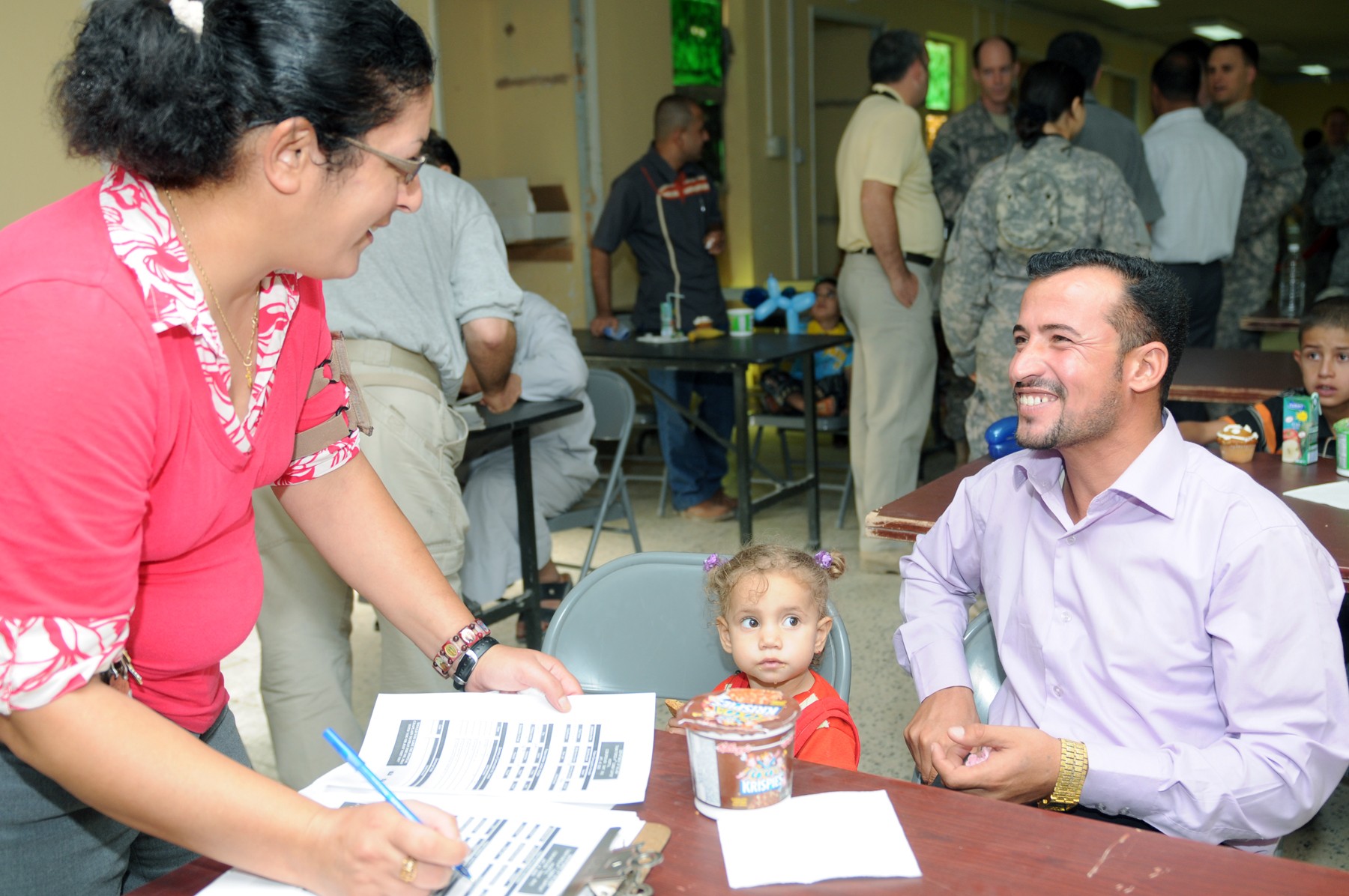
Social Sharing